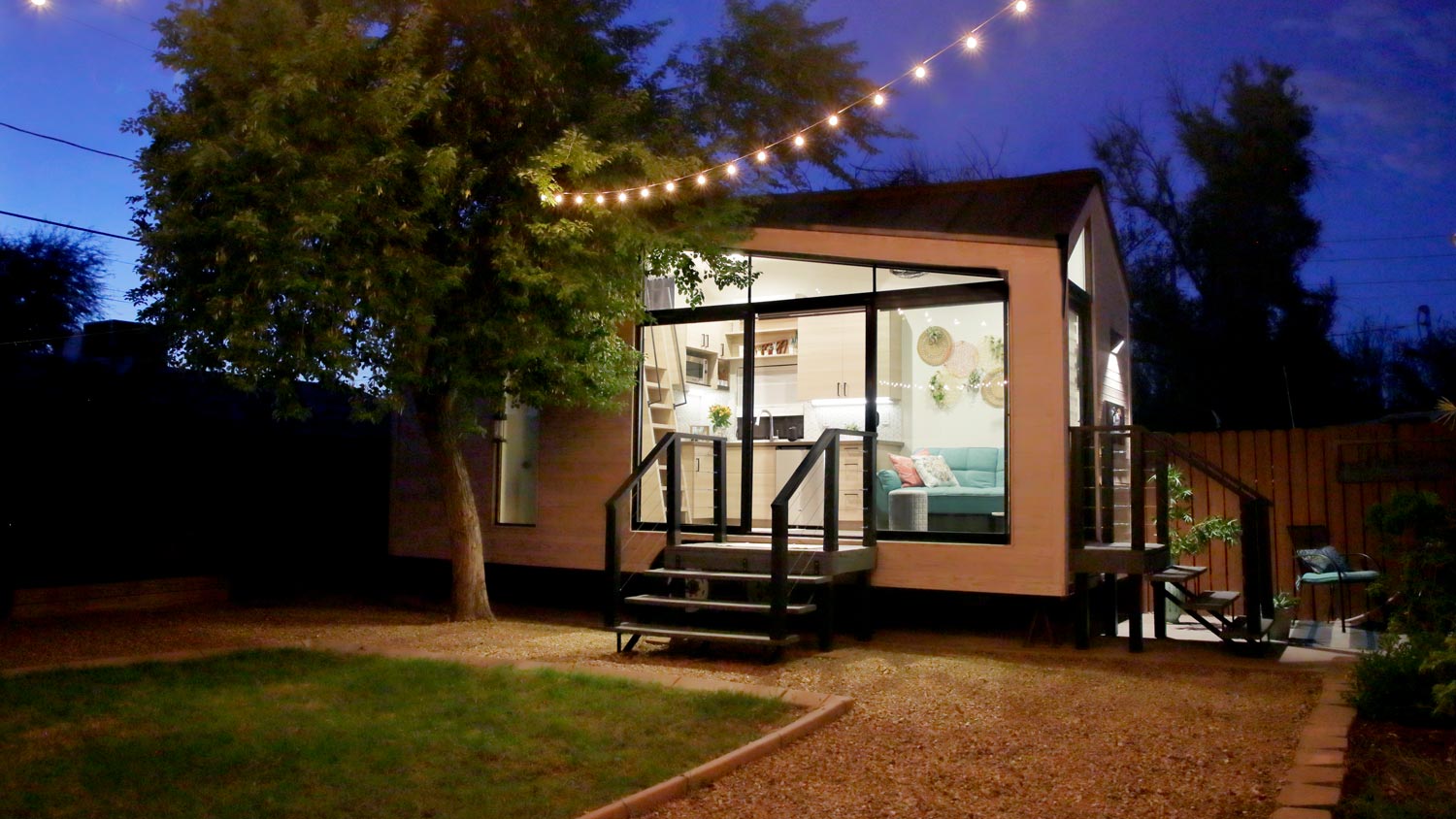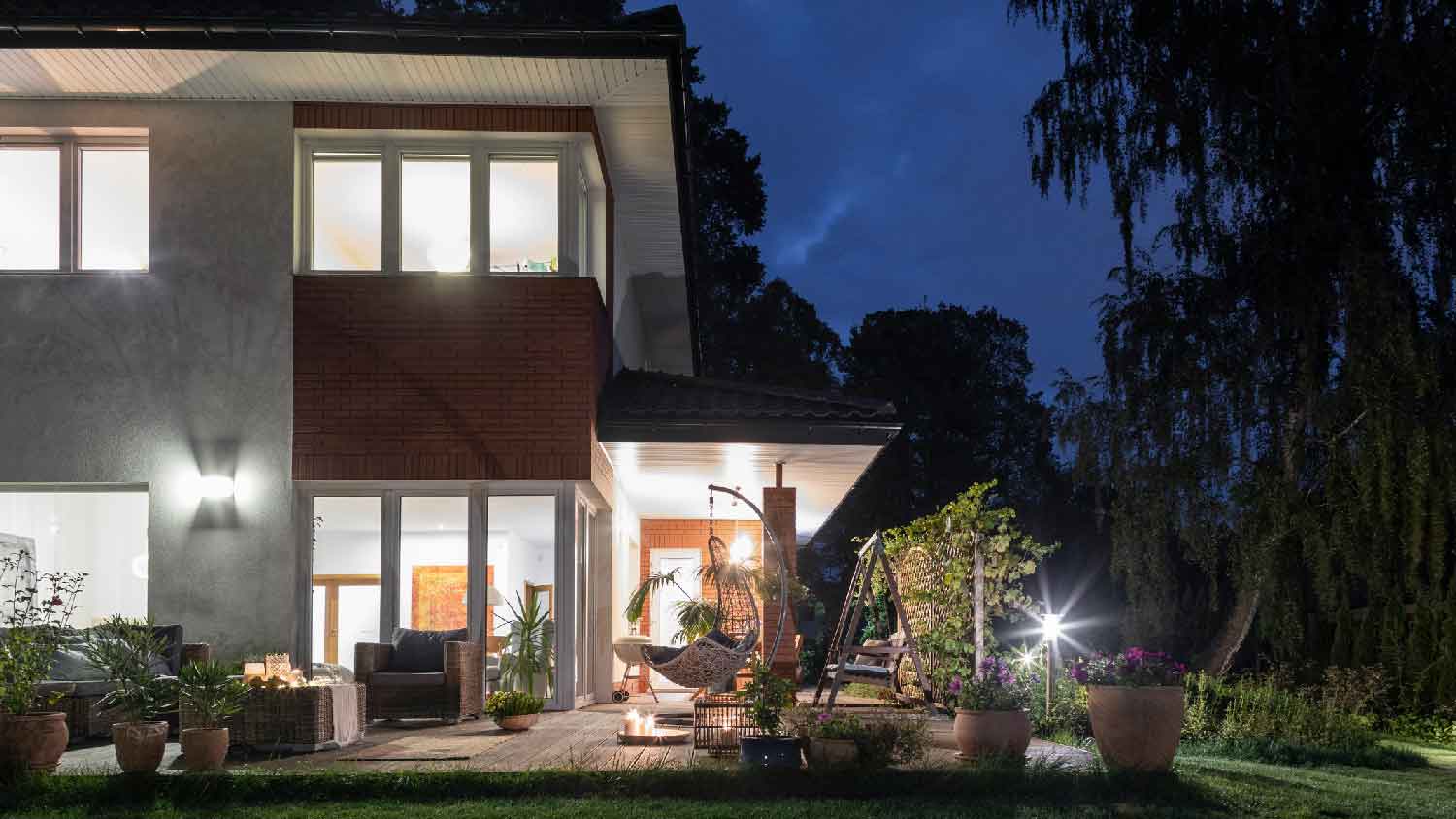
Discover the cost to install landscape lighting. Learn about average prices, key cost factors, and ways to save on your outdoor lighting project.
Proper lighting can take your garden from dark to enchanting, and it doesn't have to break the bank


Even though the sun has set, it doesn’t mean the garden party is over. Adding the right landscape lighting will not only keep your garden open after-hours, but it will also add to the curb appeal of your home. Check out these ideas for illuminating your yard on a budget.
Average cost: $5 to $100 per light
While individual solar lights can run upwards of $100 each, there are many kinds of affordable solar options on the market that are much more affordable: bundles of six lights can cost as little as $40 at major home and garden centers.
Most of these are easy to install yourself (think: stake into the ground) and don’t require any electrical training at all. The key to solar lighting is simple: Make sure the solar panels can get enough sunlight—ideally eight hours—so they can last the whole night through.

Average cost: $10 to 30 per set
One of the most wallet-friendly ways to illuminate your yard is with simple string lights. Options range from vintage Edison-style bulbs to tiny twinkling fairy lights. You can also get creative and wrap rope lights around a tree to highlight its shape!
Just remember, you’ll want outdoor, all-weather lights, and most require an electrical outlet, so you may need to buy extension cords. If you live in an area with harsh winters, you’ll probably need to remove some of the less heavy-duty outdoor lights for the season.
Pro Tip: Look for remote control devices that allow you to plug your lights in and switch them on and off from inside the house. Some string lights are also able to be connected to a transformer that will automatically turn them on and off at your convenience.
Average cost: $5 to $30
A simple, inexpensive way to light up your yard and deck is with lanterns. You can opt for lanterns that burn real wax candles, use LED candles, or have lights built-in. There are also solar options.
These can be nestled just about anywhere and moved to suit your needs. Look for stylish options at a garden center that don’t look like they belong in a camping tent.
“Tiki torches are also a very economical way to light up a path,” says Tara Dudley, Angi Expert Review Board member and owner of Plant Life Designs. “They can also help control bugs with their citronella oil.”
Pro Tip: You can even DIY lanterns for your garden with candles in flower pots. Just add hurricane glass to a terracotta pot and backfill with fine pea gravel.
Average cost: $15 to $30 or more per light
If you don’t have the budget to install extensive landscape lighting throughout your yard, consider a spotlight or two in your garden beds. These can be used effectively at the base of a tree to illuminate the trunk and branches or call attention to a shrub with architectural interest.

Average cost: $20 to $150 per light
This style of landscape lighting not only looks great, but it also has the added safety bonus of keeping walkways and paths easier to navigate after dark.
At the low end, you can create pathway lighting with evenly spaced solar stake lighting. In-ground lighting along paths and steps can take your garden to the next level, but it is also more costly and it requires digging into the landscape for installation. There can also be complex wiring that must be waterproof, which means this style might be best left to a professional landscape lighting installer or a local electrician.
Average cost: $85 to $200
If you opt for professionally installed landscaping lighting, ask for timed lights that are programmable depending on the season or occasion. By turning lights on and off at specific times, you’ll cut back on electrical bills and don’t have to worry about forgetting to turn off your lights (and therefore annoying your neighbors with bright lights at 3 a.m.).
When it comes to landscape lighting, there are many inexpensive options that homeowners can install themselves by simply plugging them in or staking them into the ground.
But when you get into more complex lighting arrangements, such as those that are installed at the time of landscaping or ones that require digging trenches and laying electrical cords, you should always hire a licensed pro.
The nature of outdoor lighting can be dangerous to DIY.
From average costs to expert advice, get all the answers you need to get your job done.

Discover the cost to install landscape lighting. Learn about average prices, key cost factors, and ways to save on your outdoor lighting project.

How do you choose between the many types of outdoor lighting when planning for your space? Learn about each kind in this quick outdoor light guide.

If there's one thing your outdoor parties and barbecues need, it's a bit of light. These outdoor lighting questions will help you light up the night.

Get transparent landscape lighting repair cost info. Learn what impacts price, compare repair vs. replacement, and find ways to save on your project.